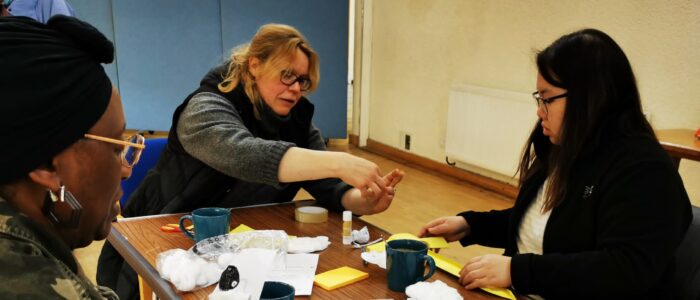Why Governments Can’t Ignore Faith

I was excited to find myself at an event on the fringe of the Labour Party conference last week. Manchester city centre had a real buzz about it, with political activists for all kinds of causes making their voices heard.
Our event was called ‘Reaching Out – Why Labour Needs Faith’, run together with Christians on the Left and chaired by Jasvir Singh of Sikhs4Labour. It featured ‘pitches’ from representatives of different faiths about the importance of faith in general and for Labour in particular. Daniel Singleton, our National Executive Director, made the case that faith is too significant to ignore – our current campaign and the subject of our upcoming conference.
Most interesting was the way in which this theme was picked up by John Denham MP. John was invited to respond to the panel from the perspective of an atheist. Yet his conviction was that any government not prepared to engage with faith would be throwing away an important opportunity, such is the size of the constituency that faith represents, and the significance of the activity in which faith groups are involved.
This is our conviction at FaithAction too. While it’s easy to point to instances where faith is seen as ‘the problem’ in our society, there is much more to say about where faith groups are finding solutions to social problems. Whether it’s through food banks, care services for elderly people, night shelters or debt counselling, faith groups are busy tackling the issues that affect people’s lives.
These issues of poverty, homelessness and the need for social care that faith-based organisations are addressing are, of course, also issues that affect public health. Last week saw the launch of our report, The Impact of Faith-Based Organisations on Public Health and Social Capital, which looks in detail at the evidence for how faith-based initiatives can make a difference to health and wellbeing outcomes.
The launch event, a symposium at Heythrop College, University of London, was an opportunity for a fascinating debate between public health professionals, academics and those from faith communities to discuss what the report’s findings mean for policy, for further research and for faith groups themselves. We’ll be reporting back – watch this space.


